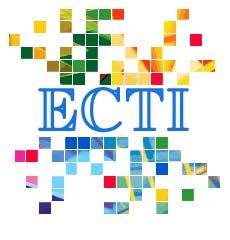Discrete-Time Feedback Error Learning and Nonlinear Adaptive Controller
Main Article Content
Abstract
In this study, the technique of Discrete-Time Feedback Error Learning (DTFEL) is investigated from the viewpoint of adaptive control. First, the relationship between DTFEL and nonlinear discrete-time adaptive control with adaptive feedback linearization is discussed. It shows that DTFEL can be interpreted as a form of nonlinear adaptive control. Second, Lyapunov analysis of the controlled system is presented. It suggests that the condition of strictly positive realness (s.p.r.) associated with the tracking error dynamics is a sufficient condition for asymptotic stability of the closed-loop dynamics. Specifically, for a class of second order SISO systems, it is shown that the control problems is reduced to select the feedback gain that satisfies the s.p.r. Finally, numerical simulations is presented to illustrate the stability properties of DTFEL obtained from mathematical analysis.
Article Details
This journal provides immediate open access to its content on the principle that making research freely available to the public supports a greater global exchange of knowledge.
- Creative Commons Copyright License
The journal allows readers to download and share all published articles as long as they properly cite such articles; however, they cannot change them or use them commercially. This is classified as CC BY-NC-ND for the creative commons license.
- Retention of Copyright and Publishing Rights
The journal allows the authors of the published articles to hold copyrights and publishing rights without restrictions.
References
[2] S. Jagannathan, "Discrete-Time Adaptive Control of Feedback Linearizable Nonlinear Systems," IEEE Proceedings of the 35th Conference on Decision and Control, Kobe, Japan, pp.4747-4752, 1996
[3] M. Kawato,K. Furukawa and R. Suzuki, "A Hierarchical Neural Network Model for Control and Learning of Voluntary Movement," Biological Cybernetics, vol. 57, pp. 169-185, 1987.
[4] A. Miyamura, "Theoretical Analysis on the Feedback Error Learning Method," Department of Complexity Science and Engineering, University of Tokyo, Tokyo, Japan, 2000.
[5] A. Miyamura and H. Kimura, "Stability of feedback error learning scheme," Elsevier, System & Control Letters, vol. 45, pp. 303-316, 2002.
[6] J. Nakanishi and S. Schaal, "Feedback error learning and nonlinear adaptive control," Neural Networks, vol. 17, no.10 pp. 1453-1465, Dec. 2004.
[7] G. Tao, and P. A. Ioannou, "Neccessary and sufficient conditions for strictly positive real matrices," in IEE Proceedings G: Circuits, Devices and Systems, vol. 137,no. 5, pp. 360-366, 1990.
[8] S. Ushida and H. Kimura, "Adaptive Control of Nonlinear System with Time Delay based on the Feedback Error Learning Method," in Proceedings of the 2002 IEEE International Conference on Industrial Technology (IEEE ICIT'02), pp. 300-366, December 11-14 2002.
[9] S. Wongsura and W. Kongprawechnon, "Discrete-Time Feedback Error Learning with PD Controller," inProceedings of the 2005 International Conference on Control, Automation and Systems (ICCAS2005), Gyeonggi-Do, Korea, June 2-5 2005.
[10] S. Wongsura and W. Kongprawechnon, "Feedback Error Learning and H1-Control for Motor Control," inProceedings of the 2004 International Conference on Control, Automation and Systems (ICCAS2004), Bangkok, Thailand, August 25-27 2004.


